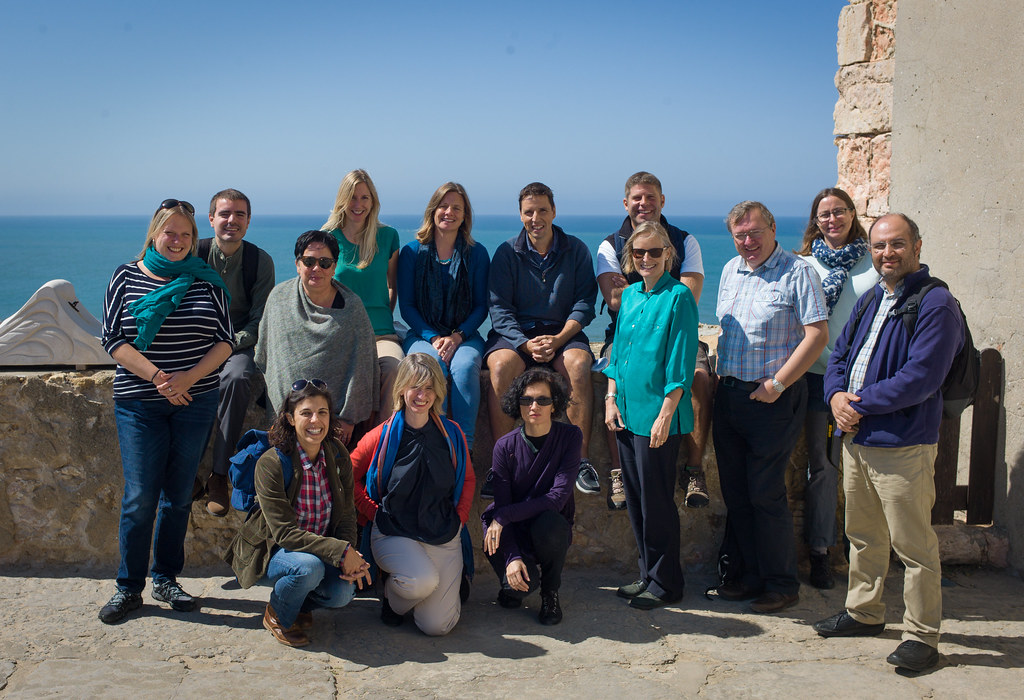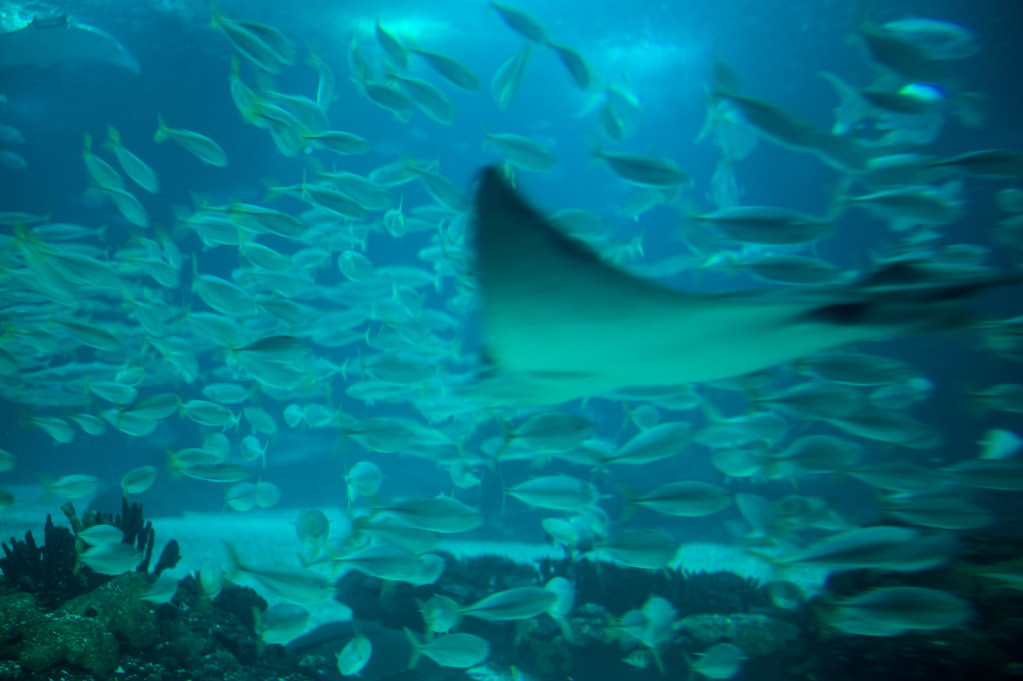This is an old revision of the document!
Marine CoLABoration Workshop - September 2015
The main purpose of the Lisbon session is to strengthen the sense of direction and shared values for the Marine CoLAB. There will also be several opportunities to extend the community by building connections with Portugese marine NGOs. On Thursday (23/09) we will have a full day for a Marine CoLAB session. On Wednesday you will have the chance to jointly decide on the content, format and desired outcomes of this session, in line with the broader Marine CoLAB goal of communicating the value of the oceans. We invite you to think about what you would like to get out of this opportunity both individually and collectively:
- How will you build on the work and relationships developed up to now?
- What would you like to achieve as the Marine CoLAB team?
- How will you know that you have achieved it?
- How will you organise yourselves in order to achieve it?

Photographs of the Lisbon trip can be found at https://www.flickr.com/photos/foam/albums/72157650383972831
A field trip to Portugal might seem as a luxury, but spending time together as a team in a different context can be essential for bringing the group closer together and advancing the vision and specific projects. Being with each other in formal sessions, on the bus and socialising before and after the sessions allowed the participants to get to know each other in a range of situations and hear about different aspects of their work and life.
The first session in the lighthouse of Nazare introduced the participants to the Portugese marine conservation context, as well as provided time to think about what the participants wanted to achieve as Marine CoLAB in general, as well as specifically discuss what the purpose of the Lab sessions on Thursday would be.
Portugese Context
Catarina Grillo welcomed Marine CoLAB and described the context within which the Gulbenkian Oceans initiative (GOI) operates. She talked about the importance of the blue economy, in a country suffering from the economic crisis and decrease of investment, including connecting to European maritime and fisheries funds. GOI is specifically focusing on the value of marine ecosystem services, and connecting social and natural sciences. They work with a range of organisations, some of whom we had a chance to meet. The Portugese marine NGO sector is very small, primarily project-based with a maximum of 20 people employed, the rest driven by volunteers. While it is wonderful to have many volunteers involved, this creates a challenge of continuity in the mid term, without much institutional memory. The small size of the sector also has its benefits: it can be agile, as everyone knows each other (a good example is https://pongpesca.wordpress.com/PONG Pesca). The sector began with a need to get a seat on the table on the common fisheries policy. Now there is a bigger group of marine biologists who essentially do everything themselves. In the UK, the sector grew exponentially in the last 10-15 years. The main difference is in the growth of the support services (fundraising, communication…), where marine conservationists had to learn to work with other skillsets to make projects happen. Skills and funding in the Portugese marine NGO sector need to be diversified. Funding should not be driving the direction of the sector, there should be more of a feedback-loop between the funding and delivery, in response to real needs. Participation is another challenge the sector is dealing with. There isn’t much environmental awareness and the extent of participation tends to be limited to signing petitions. Non-participation is a cultural problem linked to Portugese dictatorship, which ended only 40 years ago. An encouraging aspect of Portugal is that the oceans is seen as a cultural value, it is embedded in cultural traditions for centuries. This means that there is a lot of media attention for fisheries and other marine services related issues.
Context and Background Information for the Lisbon Marine CoLAB

Marine CoLAB reflections after the field trip: * Good to exchange with Portugese NGOs in their 'native environment'. * Disconnect: realisation that even though the Portugese sector is small, it is still quite disconnected. The participants emphasized the value of exchange and connection between the NGOs, between the fishermen and the communities, as well as connecting marine conservation with other sectors. There is a perceived disconnect in values, which is unsustainable in the long run. For example fishermen don’t express the value of the place; they feel threatened by NGOs, which might distort the collected data.
- Realisation that a more holistic values based approach might help to bring marine issues closer to people who don’t understand or don’t care.
- Challenges in the Portugese and UK sector are similar. Marine CoLAB could offer mentoring to the Portugese sector, in order to encourage leapfrogging.
Lab Session 2015-09-23
Co-creating the agenda:

(larger image can be found here)
From the brainstorming about what the participants wanted to achieve in Lisbon, we distilled the following objectives for the Lisbon LAB sessions:
1. Direction: Clarify the mission and vision of Marine CoLAB
- Design a sketch for a mission statement
2. Incubator for (short-term) experiments/initiatives
- Create a project pipeline (existing experiments, projects by participants’ organisations relevant to Marine CoLAB
- Have a detailed project planning session for the Plastics experiment
3. Melting pot: look at Marine CoLAB as a long term collaboration (platform, network, think tank…)
- Discuss the value of Marine CoLAB beyond individual projects (opportunities, governance, networks, capacities, etc.)
The LAB sessions should include conversations about “the Big Picture” (values, common direction, “glue”, gaps, “big ideas” etc.), as well as hone down on practicalities, such as roles and commitments, next steps and how to create time and space for Marine CoLAB for the participants who are already overcommitted…
Co-creating the mission statement:

(larger image can be found here)
Agenda 20150924
09:30 - 10:30 Check-in; reflection on field-trip, agenda design
10:30 - 11:30 Incubator project pipeline (existing and individual projects). Outcome: list of projects, decision: continue, postpone, abandon.
11:30 - 12:45 Plastics experiment: plan, roles and responsibilities, implications for lab. Outcome: Plastics plan
12:45 - 13:30 Lunch
13:30 - 14:10 Movie screening on Community Voices Method (Sue Ranger), discussion
14:10 - 15:00 Melting pot: reflections on the connections between mission and projects; Marine CoLAB MO (non-project specific); Outcome: agreement on refined vision
15:00 - 15:45 Next steps, action points and agenda for November
15:45 - 16:25 Finalising plastics plan (added after lunch)
16:25 - 16:30 Check out, final reflections and thank yous
Notes 2015-09-24

(larger image can be found here)
current projects/experiments
- plastics
- discussed in detail later
- Transparency of Marine Industries → potential as longer term project
- possibly linking plastics & transparency
- use transparency mapping / data collection as a tool/concept to help improve a project
- toward keeping corporate entities responsible for behaviour (embargo, legal, consumer, etc+)
- monitoring & exposing bad practice
- value added (related: Valuing what matters)
- how do we communicate about the environment?
- from issue centric to a values based approach
- in developing trade off analysis → lacking sufficient data, market centred, benefits often not apparent in market terms
- exploration of shared values, what values are in common across different stakeholders, avoid focusing on conflicting values / issues
- communication → from issue centric to values based)
- 'community voice method' a practical values based approach. http://communityvoicemethod.org/
- Game On! → potential as a longer term project
- would be great to develop, seems like a good time to work on it
- needs bigger team, perhaps focus by using transparency initiative, or issues around plastics
- could provide an opportunity to test 'values based' approach to exploring an issue
- pilot project to bring together a group of kids/developers/communication/NGOs to explore an issue by creating simple games, game/issue hackathons in schools/ZSL/etc, regular prize (e.g. ZSL, mozilla, shuttleworth)
- e.g. ZSL anti poaching add-on to minecraft, angry birds pangolin.
related projects by marine colab partners
- marine safe
- blue new deal
- coastal partnership network
- river academy (Thames estuary)
- community voice method (MCS)
- Beach watch / Fishonline (MCS)
- project ocean (ZSL)
- ocean optimism (ZSL)
- sustainable seafood coalition (client earth)
- stopping fishing in protected sites (client earth)
- emerging issues in the marine environment (F4F)
- scanning network - areas of high change potential ( http://thefuturescentre.org/ )
- diverting & accessing EU funds

(larger image can be found here)